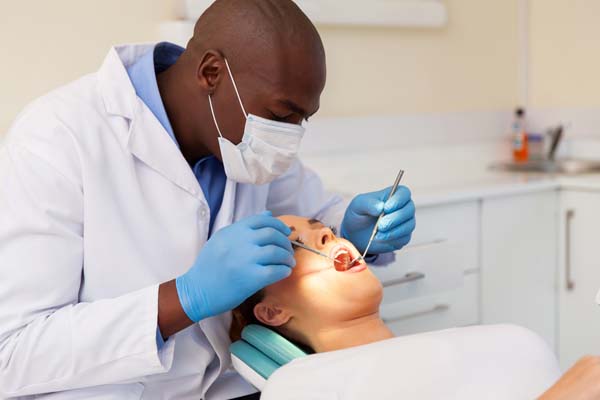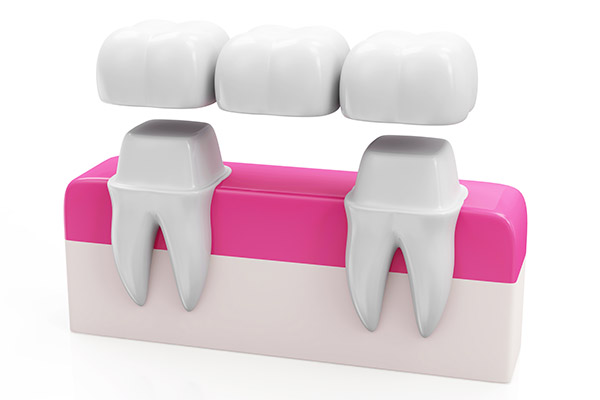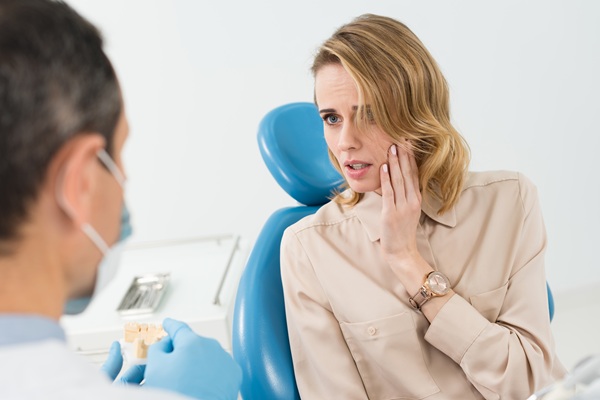Can Periodontal Disease Be Reversed?

Do you think you might have the beginnings of periodontal disease? Wondering what to do about it if you do? The sooner you address any dental problems by making an appointment with an experienced dentist, the better chances you are going to have of reversing those dental problems.
Ready to find out more now about periodontal disease?
Periodontal disease is another name for gum disease, of which both refer to a bacterial infection that takes place in the gum tissue. If the infection is in its beginning stages, then it is called gingivitis. If the infection is in its end stages, then it is called periodontitis. The reason why someone would be diagnosed with periodontal disease is that they have too much bacteria in the mouth. When bacteria can stay in the mouth for long periods of time, it will eventually lead to an infection.
Keeping bacteria under control
The best way anyone can keep the bacteria in his or her mouth under control is to brush their teeth at least twice a day and floss their teeth at least once a day. Regular dental care allows for the removal of bacteria. When brushing and flossing are not done on a regular basis, then bacteria will begin to grow and even thrive, which is not supportive of a healthy mouth.
Can you reverse gum disease?
Yes, gum disease can be reversed. The way for dental patients to start reversing any gum disease affects they may be experiencing is for them to start taking proper care of their teeth. While brushing twice a day and flossing at least once a day is the standard recommendations, some people may need to brush and floss more often. A professional dentist can offer patients recommendations on exactly how often they should brush and floss their teeth, as well as any additional dental care recommendations they deem fit to provide.
Can you reverse early gum disease?
When gum disease is caught early, it is easiest to treat. Properly brushing and flossing on a daily basis can help to reverse early gum disease in as little as 30 days. Using an antimicrobial mouthwash can also be beneficial.
Can you reverse advanced gum disease?
While it is possible to reverse advanced gum disease, the patient is going to need to undergo a few intricate treatments. The process will begin with the dentist removing all of the tartar and plaque below the gum line. If additional procedures are necessary, like grafting, the dentist can also perform these procedures. After the infection is removed from the patient's mouth, they will need to maintain their new, gum disease free mouth with excellent oral hygiene steps.
Have periodontal disease?
If you think you have periodontal disease, then you need to make an appointment as soon as possible for treatment. If you do not seek treatment with a professional dentist, the problem will only continue to get worse. Once someone is diagnosed with periodontitis, he or she may have issues keeping his or her teeth. If you want to keep your natural teeth, then you will need not to have any gum problems you are currently experiencing.
Signs of periodontal disease include receding gums, loose teeth, bad breath, bleeding gums when brushing teeth and any abscesses that may be present.
Our office and trained staff are ready to answer any additional questions you may have. We can help guide you in making the best choices for your teeth and oral health. Contact us today and let us take each step with you in attaining the oral health you have been wanting!
Request an appointment in our Torrance dentist office here: https://smilewellsouthbay.com.
Check out what others are saying about our dental services on Yelp: Periodontal Disease in Torrance, CA.
Recent Posts
Periodontics is a specialized branch of dentistry that focuses on preventing, diagnosing, and treating diseases affecting the gums and other supportive oral structures. A periodontist can help patients manage periodontal issues, ranging from mild gum inflammation to advanced cases that require surgical intervention. This dental specialty can help you maintain your oral health and prevent…
Gum care is an important component of oral care. When gum problems arise, patients can often benefit from seeing a periodontist for advanced gum care. These dental providers diagnose and treat issues with the gums, delivering targeted care to preserve oral health and prevent further complications. Understanding the role of a periodontist and recognizing when…
Dentists recommend proper oral hygiene from a young age to achieve good dental health for a lifetime. This is important for cosmetic reasons, but also to maintain overall health. One of the consequences of not brushing and flossing correctly is gum disease, which is also known as periodontal disease. This condition originally affects the gums,…
Periodontal disease, or gum disease, can be incredibly concerning and lead to other, more severe oral health issues if left untreated for an extended amount of time. Consequently, it is important to fully understand the various signs and symptoms of periodontal disease in order to be able to spot periodontal disease as soon as it…


